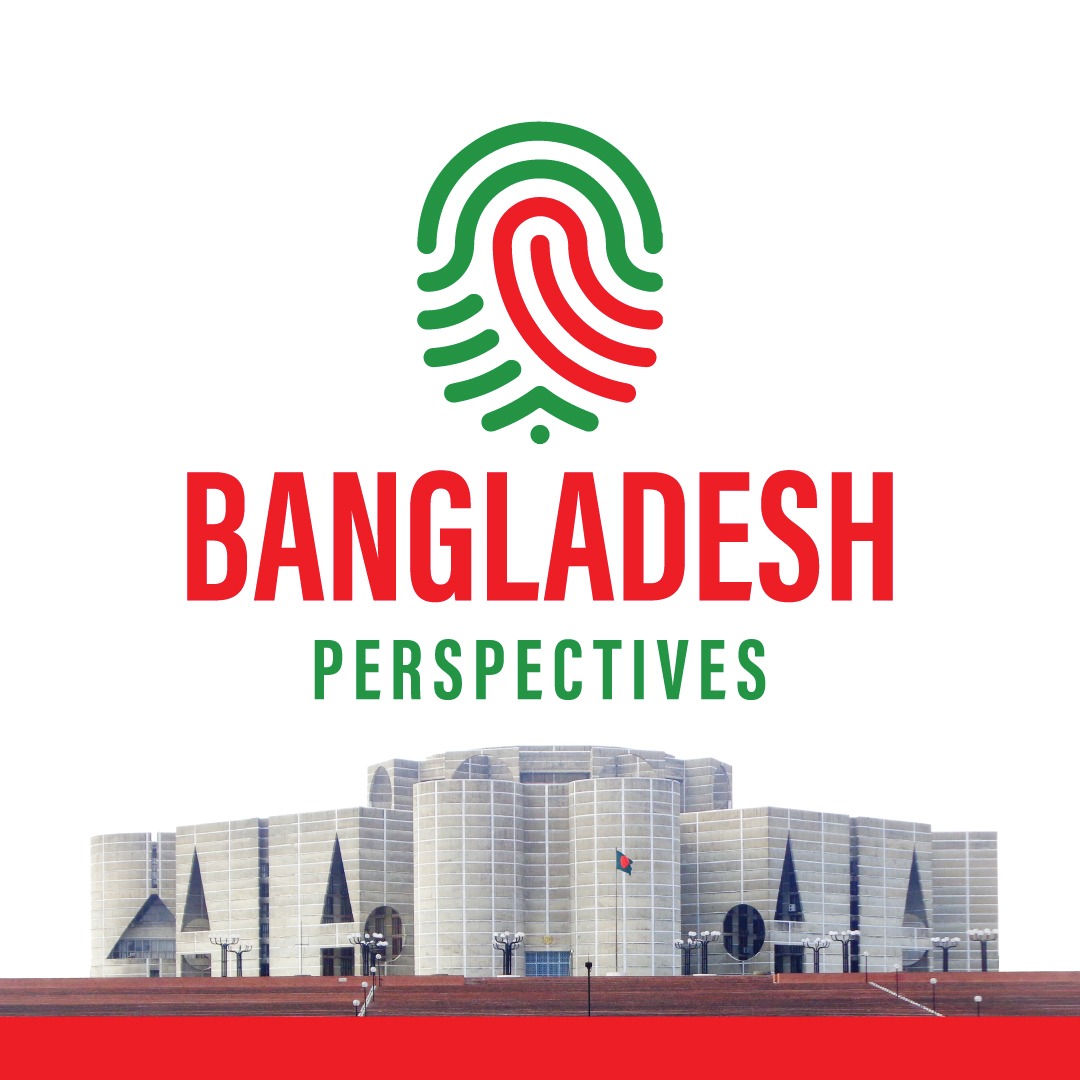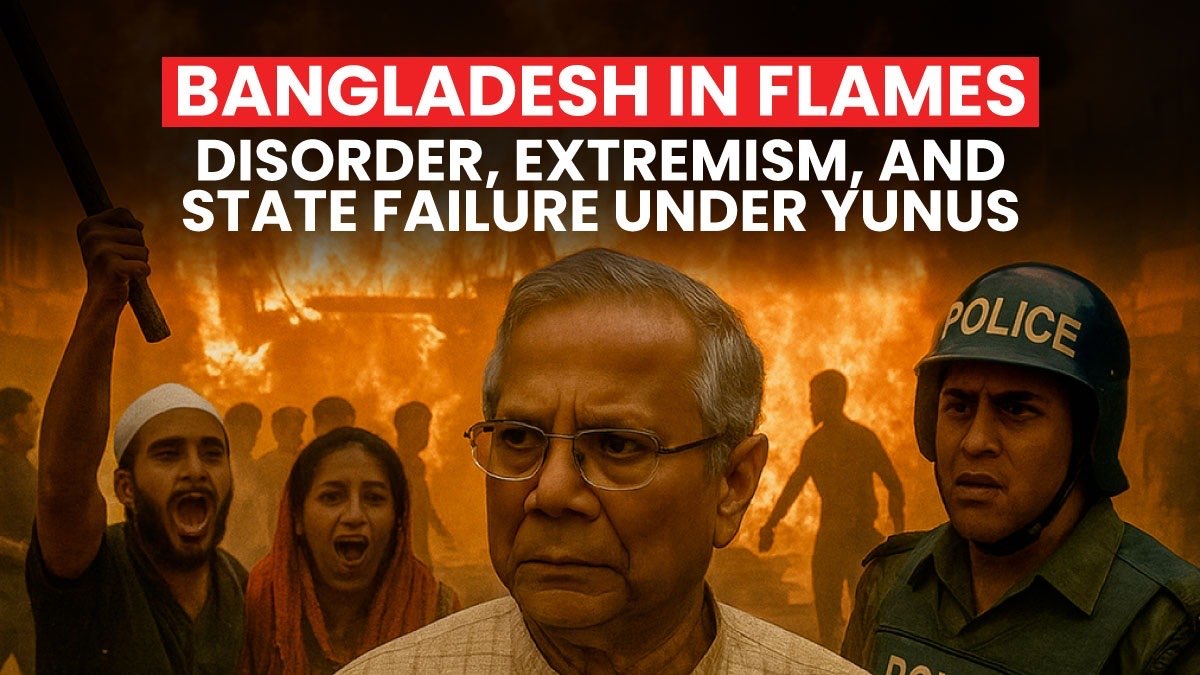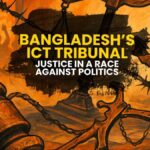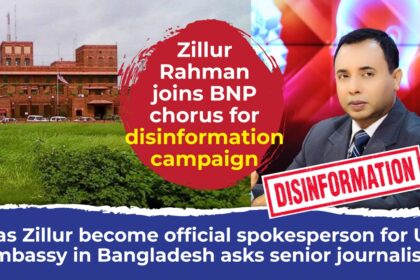Almost a year since Sheikh Hasina’s dramatic ouster, Bangladesh finds itself gripped by chaos. Instead of a democratic revival, the nation faces a deadly cocktail of mob rule, sexual violence, religious persecution, and institutional paralysis. Under Muhammad Yunus’s interim government, law, justice, and human dignity have become casualties.
Mob Justice: A Nation in FearMob violence has spiked across Bangladesh, leaving hundreds dead and hundreds more traumatized. The Economic Times reports an alarming 637 lynchings since August 2024, as extremist groups exploit the political vacuum.
Mob rule grips bangladesh after hasinas exit
During the period from August to March, the Human Rights Support Society recorded 119 mob killings and 74 injuries. The Daily Star reveals that 2024 saw 179 deaths due to mob attacks—its highest in a decade.
Mob violence: Causes, consequences, and pathways to justice
Violence has targeted everyone: from teachers to mentally ill individuals—Tofazzal Hossain was lynched over false theft claims at Dhaka University.
Sexual Violence Surges—and State InactionAs violence escalated, so did rape and sexual assaults, especially against women and children. In June 2025 alone, the Awami League reported 63 rape incidents, including 17 gang rapes, affecting minors, people with disabilities, and teenage girls.
Rapes, lynchings, unidentified bodies: Awami League slams Yunus govt over “blood-stained”
One particularly horrifying case involved an eight-year-old girl in Magura who was brutally raped and later died, triggering national outrage. The accused was sentenced to death, but the incident exposed the deep failures in securing justice.
Amid mounting public protest, the government vowed to expedite rape case processing—promising police investigations within 15 days and trials within 90 days.
Bangladesh to quicken investigations amid nationwide protests against rapes, assault on women
Sectarian and Religious Persecution Intensifies
Religious minorities—particularly Hindus—have borne the worst of this lawlessness. Between August 2024 and June 2025, over 2,442 hate crimes were committed, involving killings, sexual assaults, arson, and the desecration of temples.
Minorities under fire in Bangladesh: 2,442 hate crimes; ‘perpetrators enjoy impunity’
A UN fact-finding mission confirmed extensive mob attacks on Hindus, Ahmadiyya Muslims, and Indigenous groups, undermining Yunus’s dismissal of such incidents as “exaggerated propaganda.
UN report exposes Yunus on attacks on Hindus in Bangladesh
Indigenous communities, especially in Chittagong Hill Tracts, remain under siege as extremist student groups push a homogenized narrative—erasing their identity and subjecting them to violence.
Institutions Crumble; Extremists Gain Ground
The streets have filled with criminals as state institutions collapse. Reports from The Daily Pioneer indicate a staggering rise in murders, robberies, drug trafficking, rape, and organized gangs—with murder counts nearly doubling in late 2024.
[Bangladesh in Flames: Disorder, Extremism, and State Failure under Yunus]
Authorities responded with “Operation Devil Hunt” in February 2025, sweeping up over 11,300 individuals purportedly linked to the former regime. Critics argue it was a politically tainted mass roundup rather than an attempt at real reform.
Governance and Security on Life Support
Government promises of stability have fallen short. A year later, Bangladesh remains plagued by political unrest, violence, and rising extremism. The Associated Press reports that despite reform goals, systemic abuses and a polarized climate persist.
A year after a bloody uprising, Bangladesh is far from political stability
Social commentators, quoting India Today, describe the country as a “Vendetta Republic”—where women and minorities face mounting assaults while Islamist radicals operate unchecked, and the state remains in denial.
Vendetta Republic: Minorities, women, justice under siege in Yunus’s Bangladesh
Conclusion: A Nation Unraveling
Bangladesh under Yunus’s interim government has become a tinderbox of violence, injustice, and fear. From mob lynchings to unchecked rape, from communal cleansing to extremist empowerment, the state seems incapable—or unwilling—to protect its citizens.
Unless urgent, honest reform takes hold and justice is restored, Bangladesh risks losing its democratic soul. Can the country survive this collapse—or will Yunus’s promise be remembered as the moment Bangladesh fell into darkness?





